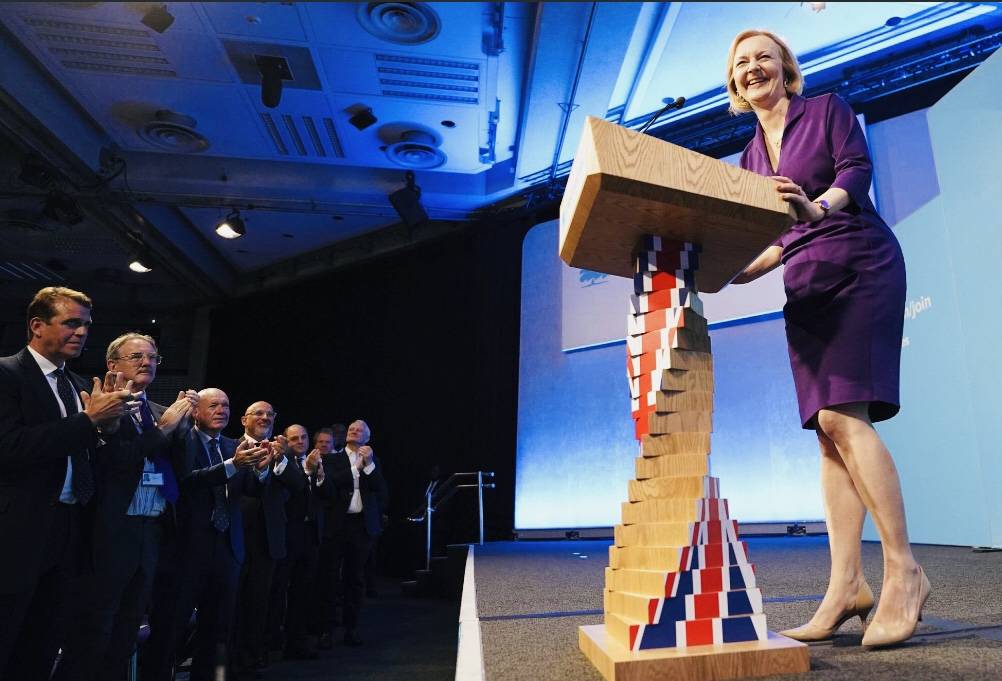An ally warned Liz Truss that her first few weeks in government would be difficult when she ran for British prime minister this summer.
But few, including Truss herself, were ready for the intensity of the cacophony and fury. The prime minister's libertarian economic ideas have resulted in several U-turns, a financial crisis, an emergency central bank intervention, and the resignation of her Treasury chief in just six weeks.
Truss is currently dealing with a revolt within the ruling Conservative Party, which leaves her leadership in tatters.
The last several weeks, according to conservative legislator Robert Halfon, have produced "one horror story after another."
He told Sky News, "The government has behaved like libertarian jihadists and has used the entire country as sort of laboratory mice for hyper, ultra free-market experiments."
Not that the party was unwarned, mind you. Truss described herself as a disruptor who would question economic "orthodoxy" during the Conservative leadership race in the summer. She pledged to reduce red tape and taxes while boosting Britain's weak economy.
With the economy still reeling from the coronavirus outbreak and the war in Ukraine, her opponent, former Treasury Secretary Rishi Sunak, contended that quick tax cuts would be unwise.
The 172,000 members of the Conservative Party, who are mainly elderly and wealthy, liked Truss' upbeat outlook. On September 5, she received 57% of the votes from members to take over as the party's leader. In one of the monarch's last acts before passing away on September 8, she was given the position of prime minister the next day by Queen Elizabeth II.
A time of national sorrow for the queen overshadowed Truss' first days in office. The economic strategy that Truss and Treasury Secretary Kwasi Kwarteng had developed was then revealed on September 23. Without a breakdown of how the government would pay for them, it included $50 billion worth of tax cuts, including a drop in income taxes for the wealthiest citizens.
Truss was acting as she and her backers had promised. The head of a libertarian think tank said there would be "fireworks" throughout the summer as the new prime minister pushed for economic reform at "absolutely breakneck pace."
However, both the financial markets and political specialists were taken aback by the announcement's scope.
According to Tim Bale, professor of politics at Queen Mary University of London, "many of us, mistakenly, expected her to pivot once she won the leadership race in the way many presidents do after winning the primaries." She didn't do that, though. She uttered what she really meant to say.
In relation to the US dollar, the pound fell to a historic low, and the cost of government borrowing shot up. In order to stop the financial crisis from spreading to the rest of the economy, the Bank of England was compelled to act by purchasing government bonds. Additionally, the central bank issued a warning that millions of homeowners may face significant hikes in their mortgage payments if interest rates rise even more quickly than anticipated to combat inflation, which is currently running at around 10%.
Senior scholar at the Institute for Government Jill Rutter claimed that Truss and Kwarteng's economic plan contained a number of "unforced blunders."
They shouldn't have been so open about how they feel about financial institutions, she said. "I believe they could have heeded counsel. One of the things they did, in my opinion, was to announce the tax cuts, which made no mention of the expenditure component of the package.
As the backlash increased, Truss started to drop pieces of the package in an effort to reassure her party and the markets.
In the midst of the Conservative Party's annual conference in early October, the tax cut for high earners was dropped due to internal opposition.
It wasn't sufficient. On Friday, Truss sacked Kwarteng and replaced him with Jeremy Hunt, who had previously served in the David Cameron and Theresa May Conservative cabinets as both the health secretary and the foreign secretary.




No comments yet
Be the first to share your thoughts!